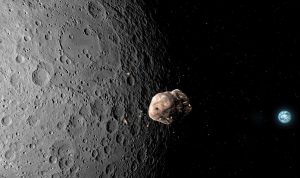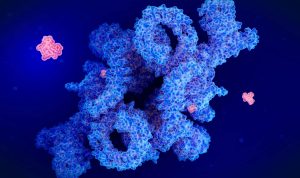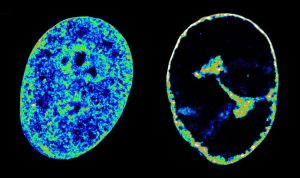Conditions in our little pocket of the universe seem to be just right for life – and the much-debated anthropic principle forces us to wonder why
When we look out into the universe, we know it can support life – if it couldn’t, we wouldn’t exist. This has been stated in different ways over the years, but the essential thrust makes up the core of a philosophical argument known as the anthropic principle. It sounds obvious, even tautological, but it isn’t quite as simple as that.
To get your head around it, start with what scientists callthe fine-tuning problem, the fact our universe seems perfectly balanced on the knife’s edge of habitability. Many fundamental constants, from the mass of a neutron to the strength of gravity, must have very specific values for life to be possible. “Some of these constants, if you make them too large, you just destabilise every atom,” saysLuke Barnesat Western Sydney University in Australia.
The anthropic principle began as an attempt to explain why the universe is in this seemingly improbable state, and it boils down to a simple idea: the universe has to be this way, or else we wouldn’t be here to observe it.
Read moreAstronomers have spotted the largest known object in the universe
Astronomers have spotted the largest known object in the universe
There are two main formulations of the principle, both of which were set out in a 1986 book by cosmologist-mathematicians John Barrow and Frank Tipler. The weak principle states that because life exists, the universe’s fundamental constants are – at least here and now – in the range that allows life to develop. The strong principle adds the powerful statement that the fundamental constants must have values in that range because they are consistent with life existing. The “must” is important, as it can be taken as implying that the universe exists in order to support life.
If the weak principle is “I heard a tree fall in the forest, and therefore I must be in a place where trees can grow”, the strong principle says “A tree has fallen nearby, and therefore this planet was destined to have forests all along.”
Untangle the weirdness of reality with our subscriber-only, monthly newsletter.
For scientists today, the weak anthropic principle serves as a reminder of possible biases in observations of the cosmos, particularly if it isn’t the same everywhere. “If we live in a universe that is different from place to place, then we will naturally find ourselves in a place that has some specific conditions conducive to life,” saysSean Carrollat Johns Hopkins University in Maryland.
As for the strong version of the principle, there are physicists who consider it useful too, Barnes among them. He works on developing different flavours of multiverse models and sees the strong principle as a handy guide.It implies that, within a multiverse, there is a 100 per cent chance of at least one universe forming that is conducive to life. So, for any given multiverse model, the closer that chance is to 100 per cent, the more plausible it is. If the probability is, say, around 50 per cent, Barnes sees that as a good omen for the model’s veracity. “But if it’s one-in-a-squillion, then that’s a problem,” he says.
This mind-blowing map shows Earth’s position within the vast universeSee the circle of galaxy clusters and voids that surround us in this map of the nearby cosmos, extending 200 million light years in each direction
This mind-blowing map shows Earth’s position within the vast universe
See the circle of galaxy clusters and voids that surround us in this map of the nearby cosmos, extending 200 million light years in each direction
In truth, however, most physicists write off the strong principle as simply too strong. It suggests the universe is deterministic; that life was always certain to emerge, according toElliott Soberat the University of Wisconsin–Madison. “But that probability could have been tiny and life could have still arisen, and the observations would be the same.”
Where does that leave us? The strong principle does, on the surface, provide an answer to the fine-tuning problem – but that answer is widely considered unreasonable.On the other hand, while the weak principle doesn’t provide a reason why the constants of our universe are so finely tuned, it is a useful tool for researchers. As principles go, this one is rather slippery.
Receive a weekly dose of discovery in your inbox!
We'll also keep you up to date withNew Scientistevents and special offers.
















